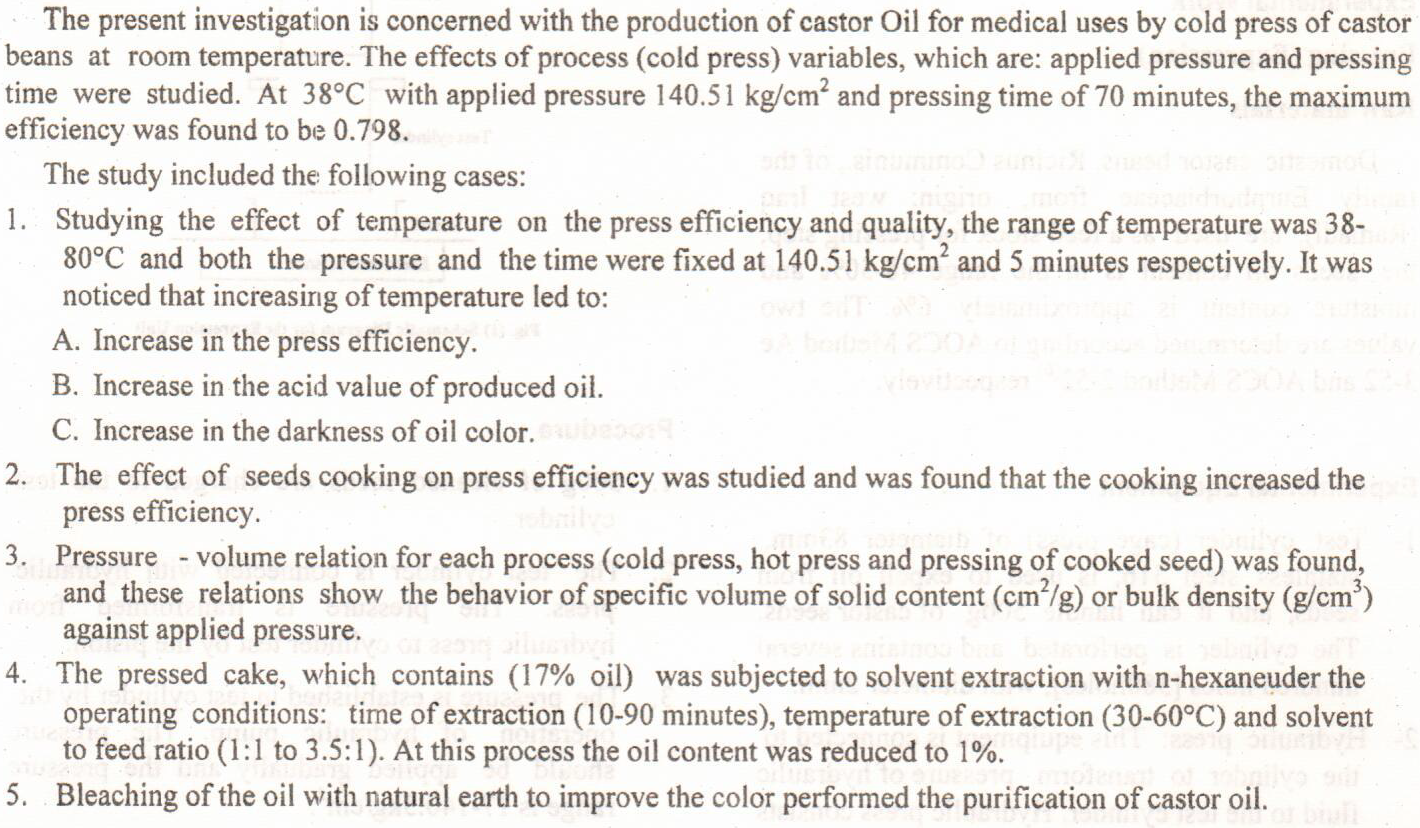
Anaerobic digestion (AD) is the most common process for dealing with primary and secondary wastewater sludge. In the present work, four pre-treatment methods (ultrasonic, chemical, thermal, and thermo-chemical) are investigated in Al-Rustumya Wastewater Treatment plant in order to find their effect on biogas production and volatile solid removal efficiency during anaerobic digestion.
Two frequencies of ultrasonic wave were used 30 KHz and 50 KHz during the pre-treatment. Sodium hydroxide was added in different amounts to give three pH values of 9, 10 and 11 in chemical pre-treating processes. The sludge was heated at 60oC and 80oC through thermal pre-treatment experiment. Also, the sludge was treated thermo-chemically at 80 oC and pH
 (17)
(17)
 (2)
(2)
Abstract
The critical success factors of the means of the most modern in determining the main directions for organizations to achieve competitive advantage. and can be a critical success factors in organizations that overlap in the functional areas of the organization. that successful organizations use these factors to get to the uniqueness and distinction. as the entrance of critical success factors with the capacity Evaluative phase correction because discovery increases the perception of managers of what is important to the organization and using them to get to the Strategic Entrepreneurship. as it begins in terms of permanence of success and
... Show MoreThe research aimed to measure the reality of monetary policy and its role in neutralizing the impact of fluctuations in total domestic oil prices, through the most important monetary policy variable (money supply). An example of this is using a simple technique in the previous example, turning it into a straightforward user interface by (Judd and Kunee). After estimating the impact of the policy with the domestic gross domestic oil prices in Iraq, the effect of fluctuations in the domestic gross domestic oil prices in the simple regression model, while the morale of oil prices was not proven with a negative sign, while the morale of money supply and their impact on the increase of the domestic was proven in the multiple regressio
... Show More (1)
(1)
The Quality function deployment (QFD) tool is an important tool of total quality management because its a link between two important parts customer and production process of the product, using advanced House of quality, which contributed to provide more details about improving the product before it had a vision for the future of the product be improved. Also the identification of the two competitors (Alwazeer , Altouri) bases on the survey of retailers which they identified five competitors products (Alwazeer , Altouri , Ferry , Jif , Dina)for the product (Zahi). Then House of quality to product (Zahi) has been developed By using a Kano Model to classify of customer's requirements for the
... Show MoreThis study aims at identifying the notion of Post-Occupancy Evaluation (POE) pertinent to the performance of three general hospitals constructed inside the Sulaimani City, tracing the relationship between the quality of the indoor environments and medical staff (doctors and nurses) satisfaction level. Using some indoor environment elements in the right way will positively influence the mood, stress level of the medical staff, and patient recovery as a result. The POE toolkits (AEDET and ASPECT) have been implemented on targeted wards at the selected hospitals. AEDET and ASPECT questionnaires were distributed among 152 medical staff to obtain their perspectives. In total, 112 valid questionnaires were received. The medica
... Show More (4)
(4)
Abstract: Urinary Tract Infections (UTIs) are the most common bacterial infection in humans and a major cause of morbidity and they are the most common cause of hospital visits worldwide. Proper knowledge in identifying factors associated with urinary tract infection may allow the intervention to easily control of the disease in a timely manner. Therefore, the purpose of the study is determining the prevalence of UTI, diagnosis of causative bacterial agents and identifying the factors associated to the urinary tract infection among patients attending Medical City Hospital in Baghdad, Iraq. A total of 237, morning mid-stream urine samples were collected aseptically and the samples were diagnosed according to the standard methods. I
... Show More (9)
(9)
 (10)
(10)
The beginning of COVID-19 in Wuhan, China in late December 2019 and its worldwide transmission has led the World Health Organization to formally address the pandemic. The pandemic has imposed influential impacts on different environmental, economic, social, health, and living aspects. Publishing in scholastic journals was not immune from these impacts.
 (1)
(1)
This research aims were to evaluate management of broiler production projects in Baghdad province via using the criteria of management, included production index and economic figure (PI and EF) that specified to those projects. in addition to criteria of economic efficiency also applied (INME) index number of management efficiency, in order to the research requirements, data were obtained based on a questionnaire prepared for this purpose, which was collected by personal interview of (60) projects of the broiler production projects from (516) projects representing 11.6% of the research community in Baghdad province in 2016. The results show that mean of PI and EF was (338). The increase in these two criteria is generally due to co
... Show MoreThis study aimed to obtain a local isolation of Aspergillus niger and then studied its ability to produce citric acid from raw materials available locally using solid state fermentation. Six local isolates were collected from different sources including some samples of the damaged fruits such as grapefruit, oranges and sindi. Wheat bran was used as a raw material or as culture medium for the production of citric acid from the collected isolates. The conditions for citric acid production were determined by humidity percentage of 1: 1 (water: culture medium), temperature of 28 C, pH 4 and inoculum dose with 5× 106 spore/ml and for 3 days of incubation. The orange was the best model for citric acid production with a concentration of 12.8 mg/m
... Show More (4)
(4)
 (2)
(2)
